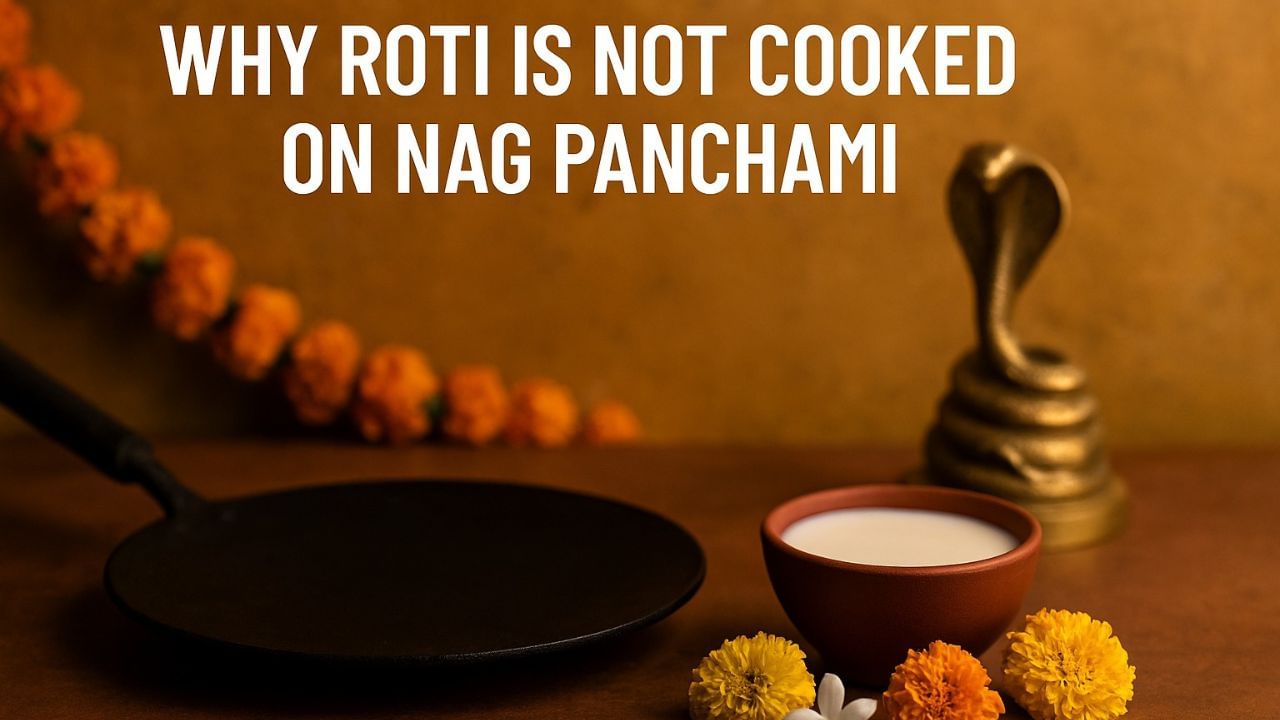Mumbai: Nag Panchami is more than just a religious festival — it is a deep-rooted Indian tradition that symbolises harmony between humans, animals, nature, and divine cosmic forces. Celebrated during the Shukla Paksha (bright fortnight) of the Shravan month, this sacred day is believed to offer protection from snake-related fears, karmic troubles, and astrological afflictions — particularly those linked to Rahu, Ketu, and the Panchami tithi.
While people across India observe Nag Panchami with prayers, milk offerings, and symbolic rituals dedicated to serpent deities, one age-old practice often sparks curiosity: why is it considered inauspicious to make roti (flatbread) on this day? It turns out, the reason lies in both Vedic astrology and deep spiritual symbolism — with the humble tawa (griddle) at the heart of this sacred belief.
Astrological reason behind not cooking roti on Nag Panchami
According to Vedic astrology, the fifth lunar day of the Shravan month — also called Nag Tithi — is astrologically charged with serpent energy. This is the day when ‘Sarpa Yog’ becomes active, and shadow planets like Rahu and Ketu, both associated with serpent symbolism, exert a stronger influence. Panchami tithi itself is believed to be ruled by serpent energy.
The tawa, used for making roti, is symbolically associated with Rahu. Using fire and metal griddles on this day is said to increase the negative impact of serpent-related planetary doshas, such as Kal Sarp Dosh or Nag Dosh. Astrologers believe that avoiding roti on this day helps neutralise these influences and maintains energetic balance. Thus, not preparing roti is considered a remedial act, meant to protect the household from unforeseen obstacles, fear, and karmic disturbances.
Religious belief behind the no-roti rule on Nag Panchami
Religious traditions add a deeper layer to this practice. In Hindu belief, the tawa is metaphorically seen as the hood of a serpent deity — especially that of Nag Devta. Using it on this day is seen not only as spiritually inharmonious but also as a form of disrespect toward the divine snake beings worshipped on Nag Panchami.
For generations, households have observed this tradition with reverence. Instead of fire-cooked rotis, families prepare alternative meals using boiled or pre-cooked items, and offer milk, water, and devotion at serpent temples or sacred anthills. The belief is that such rituals appease Nag Devta and invite blessings, health, and protection.
(Disclaimer: The information provided is based on traditional beliefs and religious texts. News9 Live does not endorse or validate these claims.)
